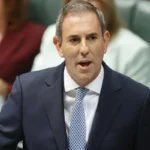Iran announced that it will not participate in the high-level summit on peace in the Gaza Strip taking place today in Egypt, despite receiving an official invitation. The summit, held in Sharm el-Sheikh, is co-chaired by U.S. President Donald Trump and Egyptian President Abdel Fattah el-Sisi, and is expected to host over 20 heads of state and government.
The Iranian Foreign Minister, Abbas Araghchi, explained the decision, emphasizing that Tehran cannot engage in dialogue with counterparts who have historically attacked the Iranian people, continue to threaten the country, and impose sanctions—directly referencing the United States. In statements shared on X, Araghchi reiterated that neither he nor President Masoud Pezeshkian could attend under such conditions, highlighting a refusal to normalize relations with countries that undermine Iran’s sovereignty.
While declining participation, Araghchi stressed that Iran supports any initiative aimed at ending what it describes as Israel’s “genocidal actions” in Gaza and upholding the Palestinians’ right to self-determination. This stance aligns with Iran’s longstanding policy of backing the Palestinian cause, particularly the Islamist movement Hamas, which Tehran has supported since the 1979 Islamic Revolution that overthrew the U.S.-backed Shah.
The decision comes in the aftermath of a 12-day conflict between Israel and Iran in June, during which U.S. forces reportedly bombed three key Iranian nuclear facilities. These events, according to Iranian officials, further solidify Tehran’s position that engagement with U.S.-aligned actors at the summit is untenable.
The Sharm el-Sheikh summit is being convened to coordinate humanitarian assistance and post-conflict reconstruction in Gaza. Notably, neither Israel nor Hamas will attend, a reflection of the summit’s focus on broader regional diplomatic and reconstruction efforts rather than direct negotiation between the primary belligerents. The presence of multiple Arab, European, and international leaders is intended to establish a framework for ceasefire monitoring, aid distribution, and initial steps toward reconstruction.
Iran’s absence underscores the ongoing geopolitical divide in the region, highlighting tensions between Tehran and Washington, and illustrating the challenges of achieving a comprehensive international consensus on Gaza. Despite this, Iran maintains its commitment to supporting Palestinian self-determination and calls for an end to the humanitarian crisis in Gaza, signaling that it will continue to exert influence on the regional stage through diplomatic and financial channels aligned with its foreign policy priorities.
Analysts suggest that while Iran’s non-participation limits its direct involvement in the summit’s mechanisms, Tehran will continue to engage through regional allies and political statements, maintaining its longstanding role as a central actor in Palestinian affairs.












